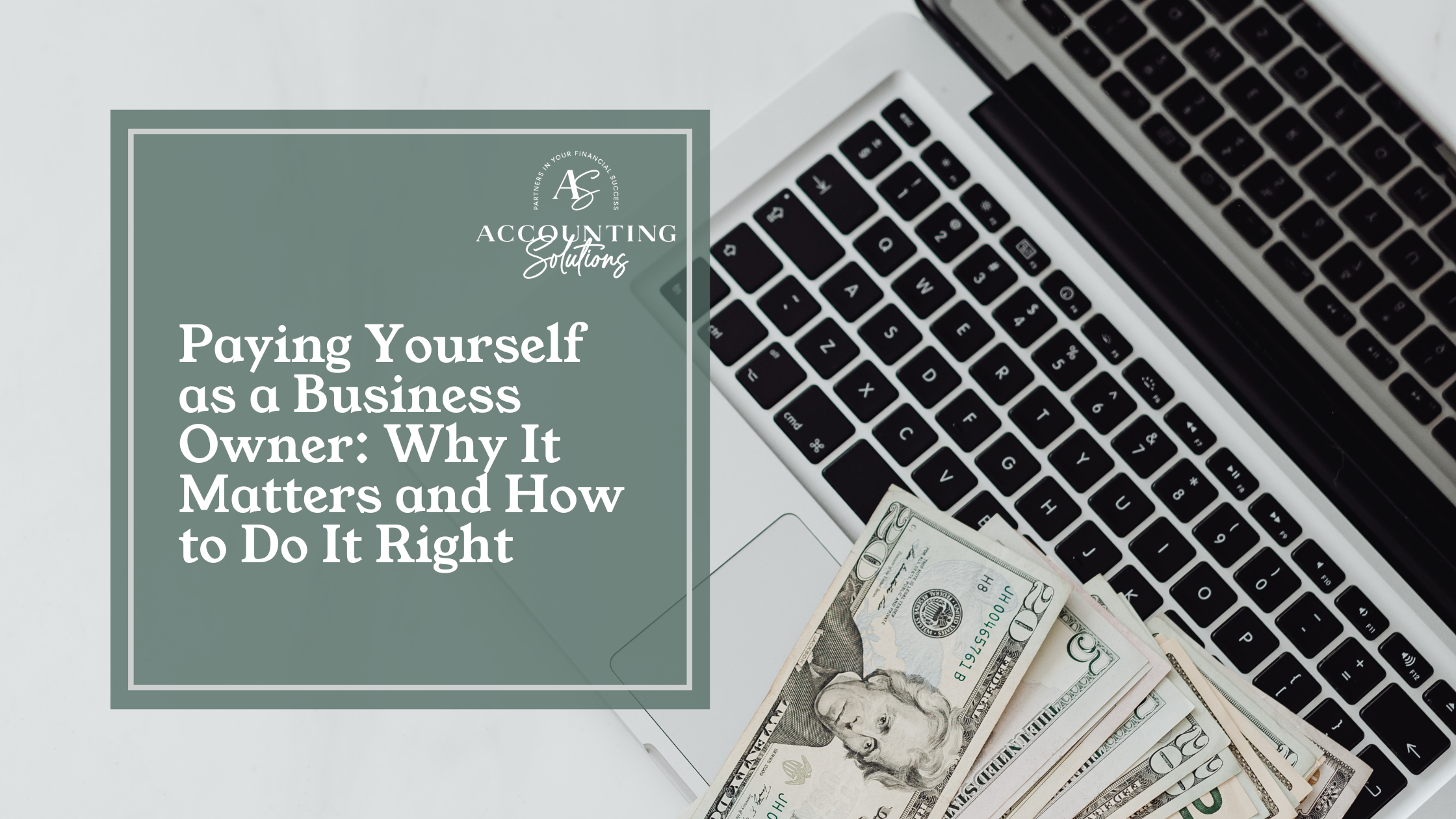Paying Yourself as a Business Owner: Why It Matters and How to Do It Right
One of the biggest challenges business owners face isn't just finding customers or creating great products—it's figuring out how to pay themselves. Unlike a traditional job with a set salary, business ownership blurs the lines between personal income and company revenue. While it might be tempting to withdraw money whenever it's available, how you pay yourself has long-term implications for taxes, company stability, and your ownership stake.
So, what's the right way to do it? The answer depends on your business structure, and the rules are more specific than many owners realize.
How Owners Get Paid by Structure
Sole Proprietors
Sole proprietors can take "owner's draws," but it's crucial to have rules in place. Taking money out whenever needed can create cash flow problems and tax complications at the end of the year. Structured and planned draws help ensure that the business maintains enough cash to operate effectively.
Partnerships
Partners do not take owner's draws. Instead, they receive Guaranteed Payments, which are a set amount outlined in the partnership's Operating Agreement, and these payments are made regularly (weekly, biweekly, or monthly). Any additional withdrawals reduce the partner's capital account and could affect their equity or ownership percentage.
LLC Members
The rules vary based on how the LLC is taxed:
Single-member LLC (taxed as sole proprietorship): Follows sole proprietor rules.
Multi-member LLC (taxed as partnership): Follows partnership rules (Guaranteed Payments).
LLC taxed as S-Corp: Owners must pay themselves a reasonable salary with taxes withheld, similar to other employees.
S-Corps and C-Corps
In these structures, owners are required to take a salary with payroll taxes withheld. This adds compliance requirements but also creates predictability and allows access to benefits.
Why It Matters
Taxes: The IRS has strict rules regarding what qualifies as reasonable compensation. Missteps can lead to audits or penalties.
Cash Flow: The wrong approach to paying yourself can either starve your business or strain your personal finances.
Equity: In partnerships, withdrawing funds incorrectly can reduce your ownership percentage.
Retirement & Benefits: The correct payment method lays the groundwork for retirement contributions, insurance plans, and long-term financial planning
The Takeaway
Paying yourself isn't just about accessing funds when you need them; it's about creating a sustainable, compliant strategy that supports both you and your business. With the right structure, guidance, and planning, you can protect your company, strengthen your future, and ensure you're compensated fairly for your efforts. After all, you've invested everything into building your business—you deserve to be paid in a way that's both responsible and rewarding.

